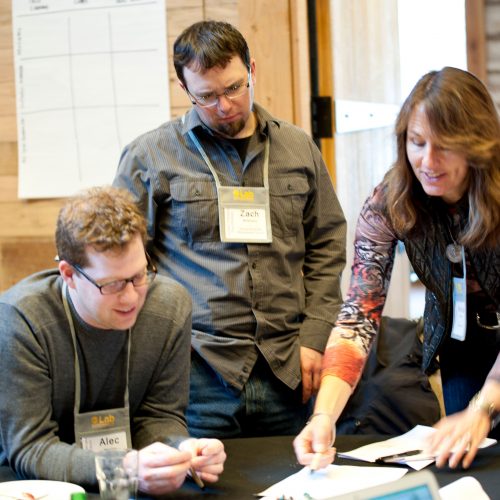
eLab Accelerator 2018
North Minneapolis Microgrid Project
Image of Minneapolis downtown skyline at sunset.

Project Objective
The project objective is to:
- Create a plan for accelerating the North Minneapolis Community Microgrid Project
- Build a shared understanding of microgrid community benefits
- Reinforce partner commitments to next steps
- Create a replicable model for incorporating equity, benefits, and technology innovation into community-scale microgrid projects

Team Memebers
- Jamez Staples, President, Renewable Energy Partners (REP)
- Ellen Anderson, Director, Energy Transition Lab, University of MN
- John Tuma, Commissioner, MN Public Utilities Commission
- Patrick Dalton, Xcel Energy, Distribution Engineering
- Peter Ebnet, Senior Strategic Policy Advisor to the Mayor of Minneapolis.
- Matthew Chatham, Open Access Technology International (OATI)
- Michael Krause, Kandiyo Consulting
- Channon Lemon, Project Consultant
Project Description
The North Minneapolis Microgrid project is part of a vision of a sustainable, economically thriving, resilient, clean energy community along the Plymouth Avenue corridor. North Minneapolis is a racially diverse, low-income neighborhood. The microgrid will be built upon the foundation of a renewable energy job training center coupled with a community solar garden installation, that will have energy storage, electric car-sharing, and other innovative energy systems that provide community benefits.
Progress Made to Date
Renewable Energy Partners (REP) has finalized an agreement with the City of Minneapolis to develop a 1-MegaWatt rooftop Community Solar Garden on North High School. REP has begun the process of developing a green infrastructure and trades training center on Plymouth Avenue. Many surrounding private and public building owners have been engaged regarding a build-out of solar within the project boundaries. Xcel Energy Regional Vice President for Rates and Regulatory Affairs has signed a letter of support, and will commit Xcel staff time to the project.
Project Background Information
Our University of Minnesota partner has submitted an NSF Smart and Connected Communities proposal, including several collaborating faculty in engineering, design, economics, and political and environmental science; is overseeing a Clean Energy Access Collaborative grant from the University’s Institute for Advanced Studies (IAS), which the team is using to conduct community engagement on energy and the microgrid; is utilizing Professor Anderson’s students to conduct preliminary research and create communication and presentation materials for the project.
Post-Accelerator outcomes
At Accelerator, the team first focused on better understanding community needs and whether a microgrid was the best solution to meet those needs. The team identified economic development, workforce training and jobs, and critical services capabilities as key priorities in the community. They created a schematic and a technical action plan to move forward with analysis of a few key concepts: a single islandable school facility, two or three islandable school or school district buildings connected with existing utility distribution infrastructure. The business model for the microgrid will leverage existing solar garden programs in Minnesota, and financing for solar assets will likely be a combination of traditional debt and tax equity. The City of Minneapolis will serve as a backstop, or flexible anchor tenant, for community solar gardens serving low-income customers. The team saw the potential for learning across stakeholders in Minnesota on microgrid project development and deployment as a major motivator for this project, with the intent of scaling and replicating microgrids across the state in the future. Moving forward, the team will continue to refine their community engagement and outreach strategy, and move forward with existing plans for training center expansion and solar community garden deployment at North High School. Additionally, the team will continue to explore the technical feasibility of the microgrid options defined at Accelerator. The team will seek to better understand the potential ownership options for microgrid components including storage and distribution lines, including the utility's appetite for ownership.